LATEST INSIGHTS
"Cash flow, not reported earnings, is what determines long-term value" - William Thorndike
The better you manage your cash flow (especially if you're a small business), the more your business will thrive. This is because by managing your cash flow, you would be able to better plan for the future (manage large expenses or expand your business).
Follow the tip we've outlined below to manage the way that money moves through your business to set yourself up for success.

9 Tips to Managing Your Cash Flow
1. Monitor Your Cash Flow Consistently
A solid understanding of your business's cash flow is the foundation of effective cash flow management. Develop annual, quarterly, and monthly cash flow projection to anticipate future cash flow needs. By closely monitoring your operating expenses, stock levels, debt collections, and profit margins, you'll be better positioned to avoid cash flow shortages.
Pro Tip: Working with an accountant can provide an external perspective on your financial situation, helping you identify trends or cash flow improvement strategies that might not be obvious. If you're unsure about managing your business's finances, it's worth seeking help from trusted accountants, or business advisors like our team at Synergy Accountants.
2. Build a Cash Buffer for Emergencies
We cannot overstate the importance of setting up an emergency cash reserve for your business. In the same way you might have this "rainy day fund" for personal expenses, a business emergency fund will help you be prepared got any unexpected expenses, cost increases, or temporary dips in sales.
Opening a seperate business savings account can help you earn interest on your reserve fund while keeping them accessible when needed. Generally, we recommend having between 3-6 months worth of expenses saved even though in certain industries where fluctuations are more prevalent, like hospitality, more would be advisable due to the fluctuating nature of income streams.
3. Leverage Financial Tools and Credit Options
Businesses often rely on external financing such as lines of credit, overdrafts, or business loans to maintain cash flow. It is a good idea to evaluate your financial products regularly to ensure they're still meeting your business needs. Consider the cost-effectiveness of borrowing options while exploring new financial tools that could help you better manage your cash flow.
For example:
- Overdrafts can provide flexible short-term funding, allowing you to cover operating expenses without tapping into long-term reserves.
- Revolving credit facilities allow you to borrow, repay, and re-borrow funds as needed, providing you with more flexibility compared to term loans.
- Invoice financing can give you access to funds tied up in unpaid invoices, helping to reduce cash flow gaps.
Pro tip: If your business is experiencing fast growth, speak to your accountant or finance broker about reviewing and increasing your credit facilities (usually, it’s easier to negotiate terms in advance rather than during a cash flow crisis).
4. Encourage Faster Customer Payments
As simple as it might sound, boosting your incoming cash flow often starts with receiving payments faster. To do this, shorten payment terms where possible and issue invoices immediately after delivering goods or services. You can also introduce automated invoicing systems to streamline the billing process and send out reminders when invoices are overdue.
Additional strategies:
- Implement incentives such as early payment discounts to encourage faster payment.
- Offer on-the-spot payment options using mobile payment solutions or EFTPOS systems, reducing the delay between service delivery and payment.
- For B2B businesses, consider offering payment plans to make larger orders more accessible while ensuring regular incoming payments.
Pro tip: Regularly review customer payment histories to identify clients who consistently delay payments. Set firmer terms with these customers or consider stricter penalties for overdue accounts.
5. Optimise Payment Terms with Suppliers
While receiving payments promptly is important, holding off on paying your suppliers until the due date (or negotiating longer payment terms) can also help preserve your cash flow. Avoid paying invoices earlier than necessary unless you’re offered an early payment discount, and use the time between receiving and paying invoices to your advantage.
Additional strategies:
- Negotiating extended payment terms with suppliers can give you more breathing room to manage your cash outflows.
- Using a business credit card for supplier payments can help you take advantage of interest-free payment periods, giving you additional flexibility as long as you repay the balance each month.
6. Seperate Personal and Business Finances
Keeping your personal and business finances separate is important for clarity and financial control; this will help you monitor your cash flow and make tax time easier, saving you both time and money. Consider setting up separate business accounts for daily transactions and an additional savings account to manage cash reserves and accrue interest.
Pro tip: When using personal funds to support business activities, make sure to document these as formal loans or capital injections, ensuring that everything remains clear for tax and accounting purposes.
7. Speed Up Inventory Turnover
Regularly reviewing your inventory levels ensures that you’re not tying up cash in excess stock. Carry only what you need to meet current demand. Overstocking can unnecessarily tie up funds and increase storage or insurance costs, which can negatively impact your cash flow.
Additional strategies:
- Perform regular inventory audits to identify slow-moving products and consider discounts or promotions to clear them out.
- Adopt just-in-time inventory management techniques, where you only order stock as needed, reducing the amount of cash tied up in inventory.
- Build relationships with your suppliers to ensure you can receive stock quickly and without delay when necessary.
Pro tip: Invest in inventory management software that integrates with your accounting system to provide real-time updates on stock levels, sales, and cash flow implications.
8. Create a Budget and Stick to It
We've seen it happen time and time again; if you're a startup, it is more tempting to overspend as you're trying to grow your business or make a bigger impact. However, this can all be eliminated by creating a comprehensive budget.
Plan out your expected income and expenses on a monthly or quarterly basis, and regularly review this plan to make sure you’re staying on track. A well-managed budget helps prevent overspending and ensures that your cash flow remains healthy, giving you the flexibility to invest back into your business when necessary. Moreover, you'll now regularly review your budget, which will motivate you to ensure your spending is as efficient as possible.
9. Leverage Expertise from Synergy Accountants
While it's important for small business owners to understand their cash flow, collaborating with our team at Synergy Accountants can further improve your cash flow management. Our experts bring business planning and management knowledge to help optimise your cash flow and support sustainable business growth.
Here's how we can help:
Cash Flow Analysis
At Synergy Accountants, we specialise in analysing the financial patterns of your business to identify opportunities for improvement.
Through comprehensive cash flow analysis, we can:
- Identify inefficient spending: Our team reviews your expenses to pinpoint areas where your business may be overspending or where costs could be reduced without compromising operational efficiency.
- Spot seasonal trends: By examining your cash flow history, we can identify seasonal highs and lows, helping you prepare for slower periods by advising on savings strategies or securing lines of credit in advance.
- Optimise payment cycles: We provide insights into improving payment terms with suppliers and clients, ensuring you’re not paying suppliers too early or facing long delays in receiving customer payments.
By consistently reviewing your cash flow statements, we recommend tailored strategies to balance income and expenses, ensuring cash is available when needed.
Financial Health Assessments
Our accountants thoroughly assess your business’s overall financial health, focusing on profitability, solvency, and liquidity.
These assessments enable us to:
- Pinpoint weaknesses: We generate detailed reports that highlight specific weaknesses or risks in your current cash flow strategy. For example, we may identify overly aggressive payment terms with suppliers that deplete cash reserves too quickly or recurring late payments from customers that necessitate stricter credit policies.
- Forecast future cash flow challenges: Our team uses cash flow projections to predict periods when cash flow might be tight due to upcoming expenses, giving you the foresight to make adjustments before potential issues arise.
- Set financial goals: We help you establish realistic financial goals based on your cash flow, such as when to reinvest in the business, hire new staff, or expand operations.
Ongoing Advisory Services
Cash flow management is an ongoing process, and at Synergy Accountants, we offer continuous advisory services to guide you through:
- Tax advisory: We ensure you know about upcoming tax obligations, preventing unexpected cash drains when payments are due.
- Debt restructuring: If cash flow is particularly tight, we can assist in negotiating new terms for debt repayments or suggest restructuring options to free up cash for immediate use.








